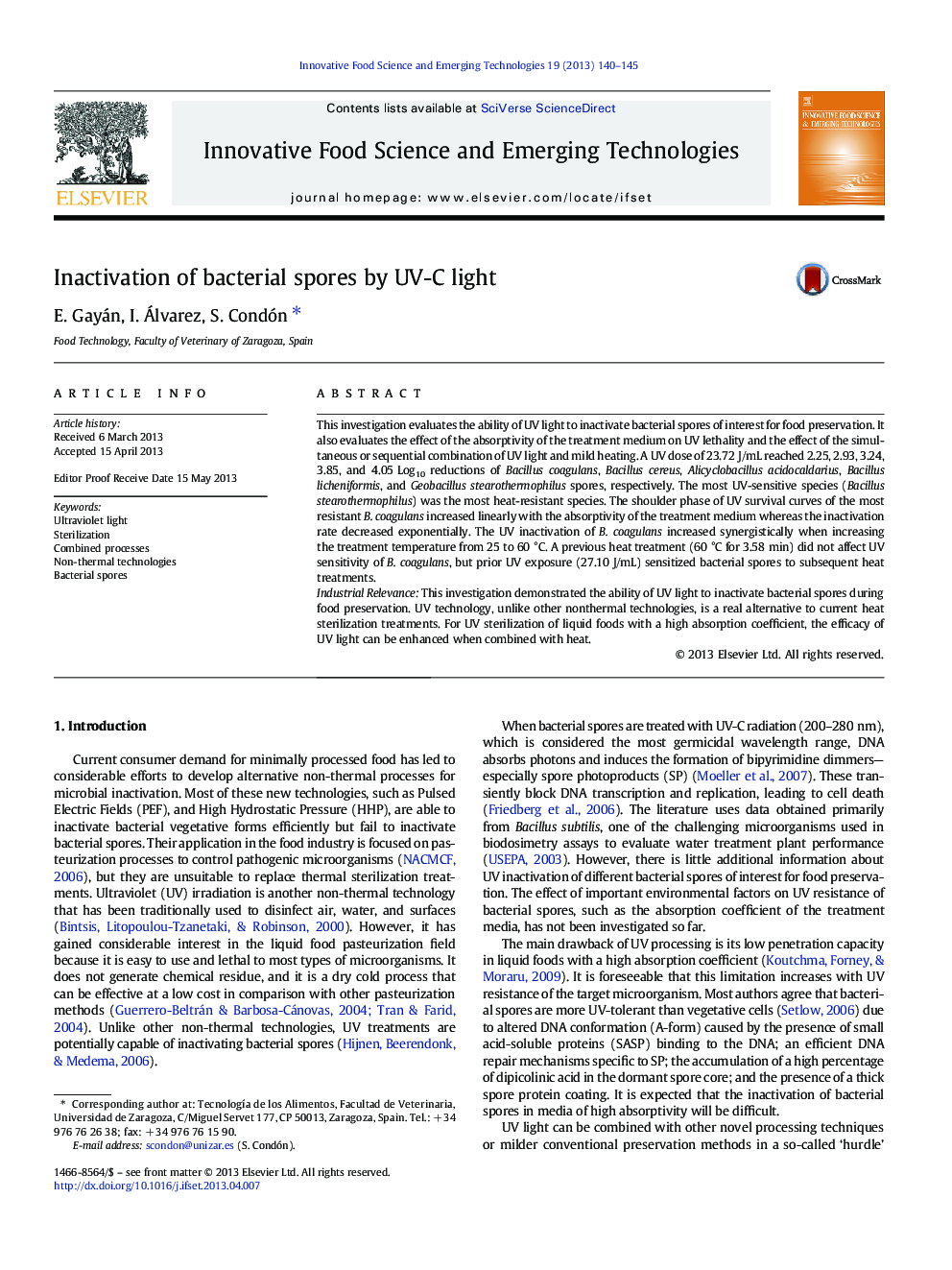| Article ID | Journal | Published Year | Pages | File Type |
|---|---|---|---|---|
| 2086870 | Innovative Food Science & Emerging Technologies | 2013 | 6 Pages |
•UV light is a real alternative to current heat sterilization.•The efficacy of UV light on bacterial spores can be enhanced when combined with heat.•The UV inactivation of bacterial spores increases synergistically at 60 °C•A previous heat treatment did not affect UV sensitivity of B. coagulans.•A prior UV exposure sensitized bacterial spores to subsequent heat treatments.
This investigation evaluates the ability of UV light to inactivate bacterial spores of interest for food preservation. It also evaluates the effect of the absorptivity of the treatment medium on UV lethality and the effect of the simultaneous or sequential combination of UV light and mild heating. A UV dose of 23.72 J/mL reached 2.25, 2.93, 3.24, 3.85, and 4.05 Log10 reductions of Bacillus coagulans, Bacillus cereus, Alicyclobacillus acidocaldarius, Bacillus licheniformis, and Geobacillus stearothermophilus spores, respectively. The most UV-sensitive species (Bacillus stearothermophilus) was the most heat-resistant species. The shoulder phase of UV survival curves of the most resistant B. coagulans increased linearly with the absorptivity of the treatment medium whereas the inactivation rate decreased exponentially. The UV inactivation of B. coagulans increased synergistically when increasing the treatment temperature from 25 to 60 °C. A previous heat treatment (60 °C for 3.58 min) did not affect UV sensitivity of B. coagulans, but prior UV exposure (27.10 J/mL) sensitized bacterial spores to subsequent heat treatments.Industrial RelevanceThis investigation demonstrated the ability of UV light to inactivate bacterial spores during food preservation. UV technology, unlike other nonthermal technologies, is a real alternative to current heat sterilization treatments. For UV sterilization of liquid foods with a high absorption coefficient, the efficacy of UV light can be enhanced when combined with heat.
